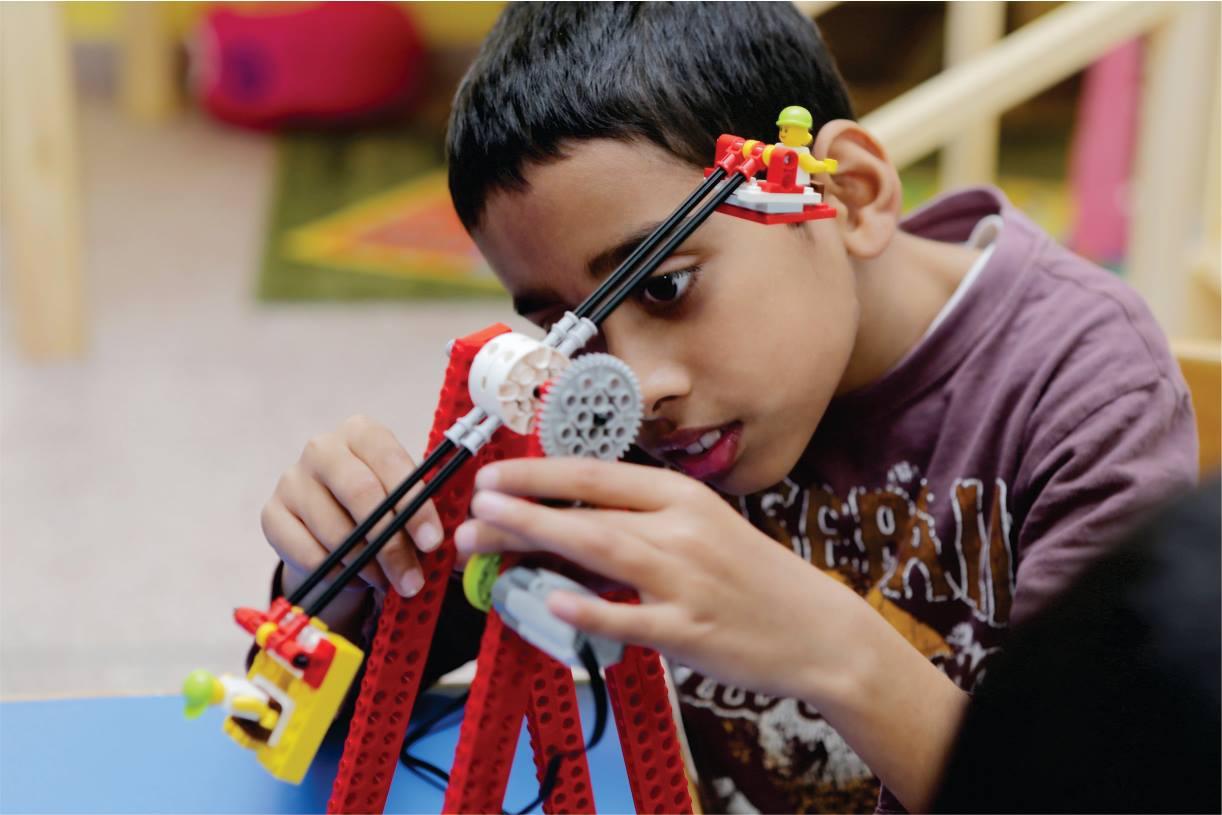
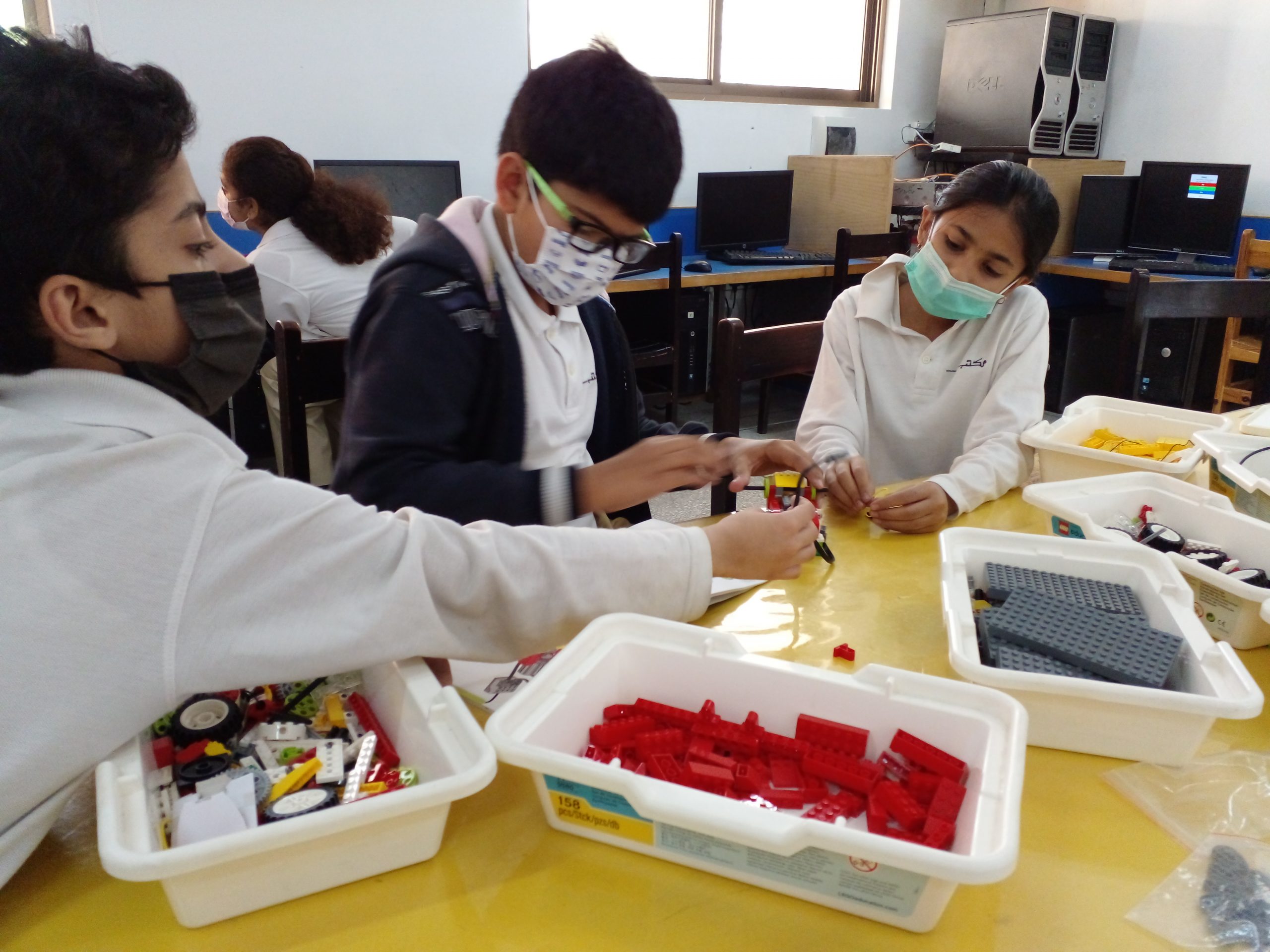
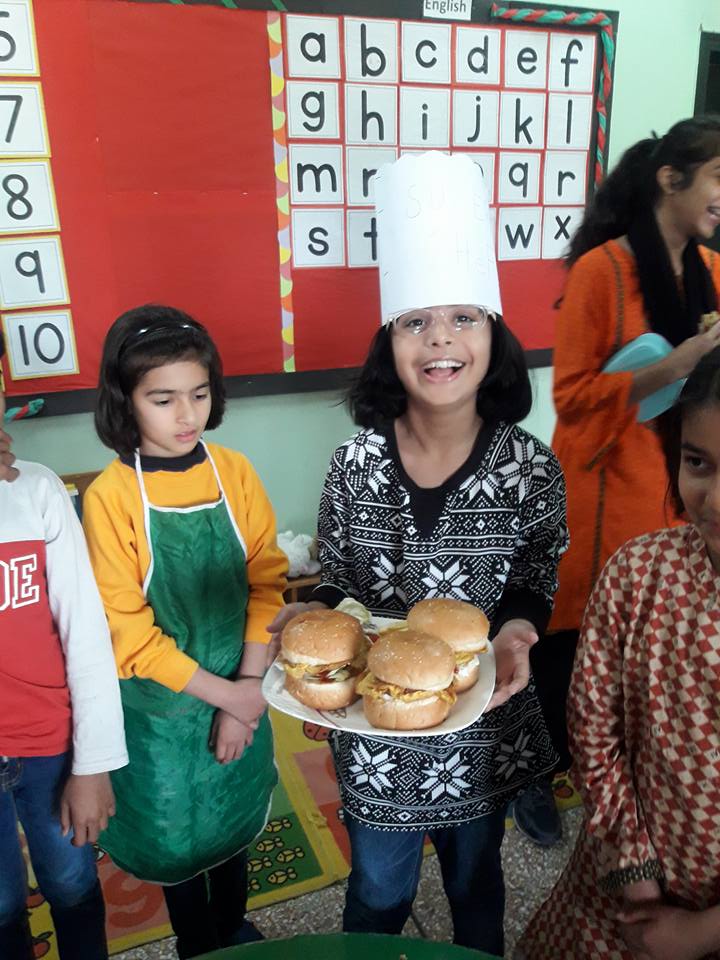


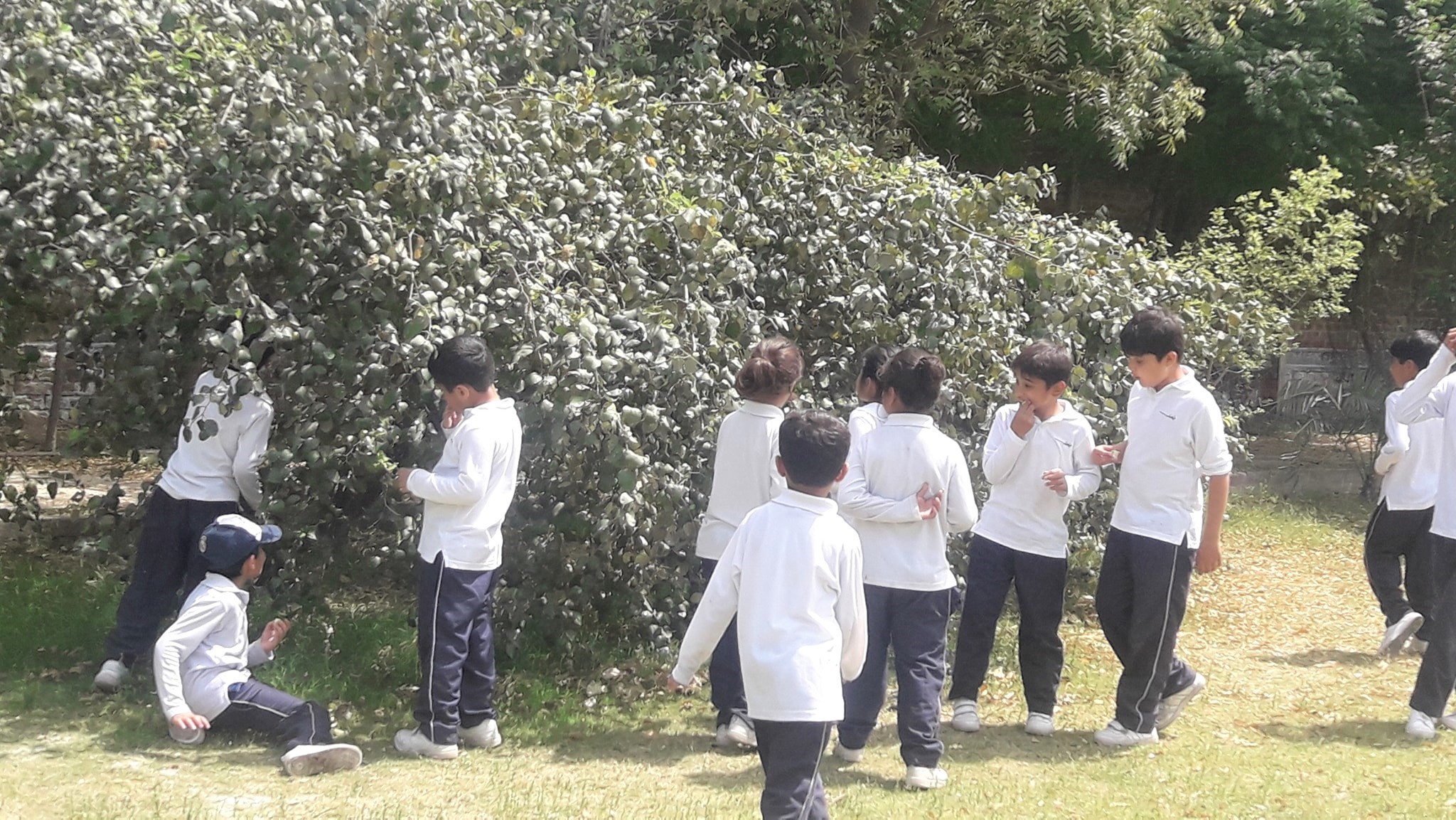

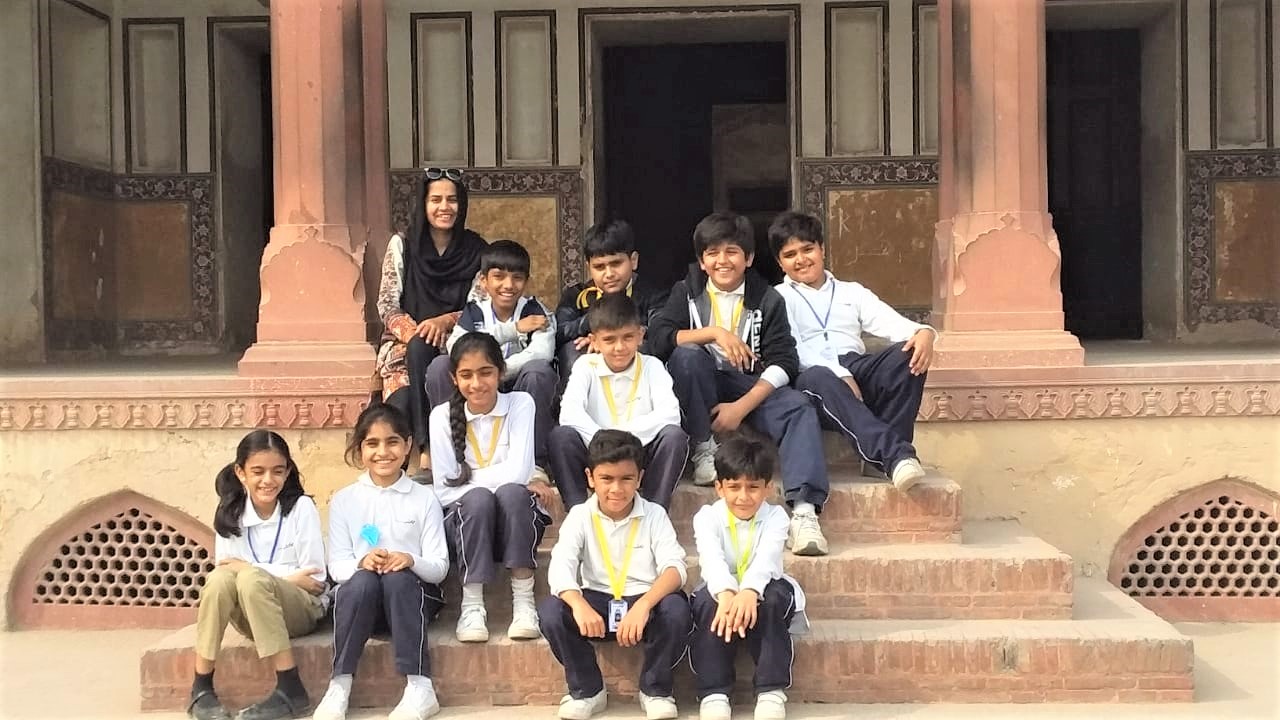
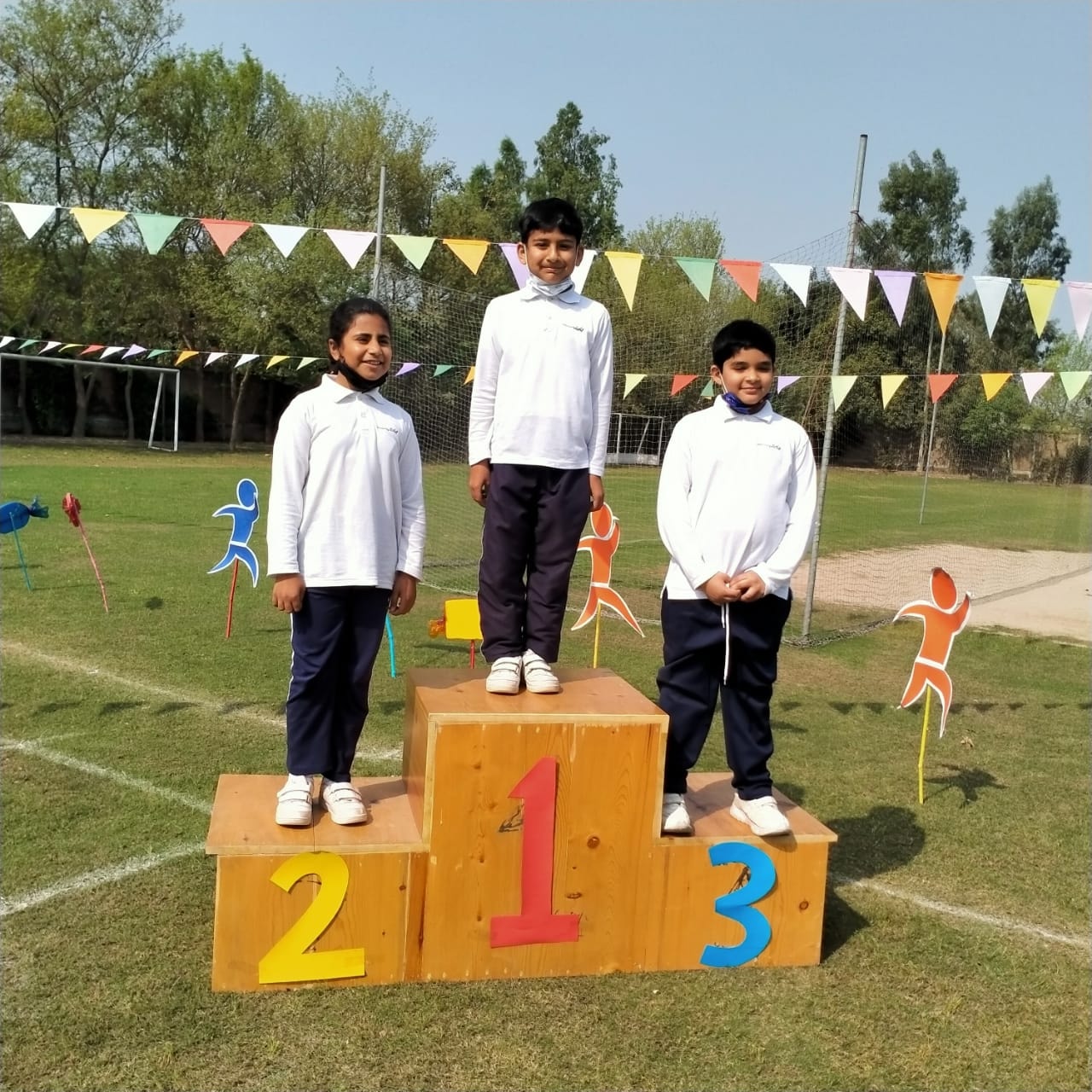
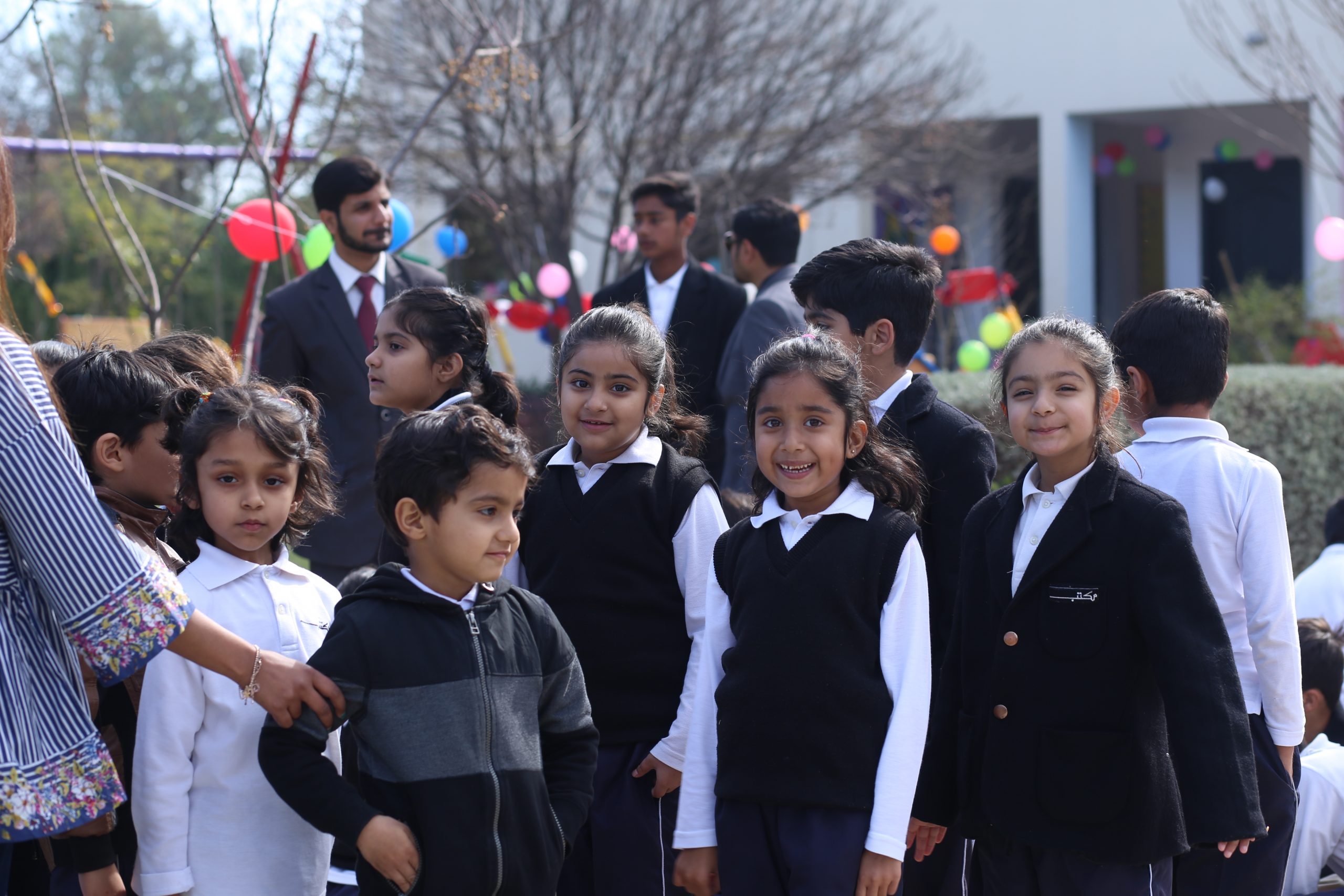

Junior School is comprised of Grades I-VI. It is characterized by a supportive academic environment that lays the foundations for the Middle School years. Basics in mathematics, writing, and spelling as well as elements of scientific and creative thought are emphasized at Maktab. This strong academic curriculum is accompanied by an equally rich art, music, robotics, and computer science programme.
The first two years of Junior School have no formal grades or examinations. Starting from Grade III, grades are given but only at the level of satisfactory, progressing, or unsatisfactory.
Both English and Urdu langauges are integrated into every aspect of the academic work at Maktab. The objective is to enable students to become life-long readers and writers able to communicate their ideas and feelings effectively and to understand the ideas and feelings of others. Language at Maktab is understood to include speaking and listening as well as reading and writing. Field trips take language study out of the textbook and into the real world.
Reading
Children become more fluent readers by having frequent opportunities to practice reading. Maktab believes that students learn at their own pace, and in their own way.
The classroom reflects this belief by providing a wide and rich variety of reading experiences. Instead of having an either/or approach to reading, expecting students to learn either by phonics or whole language, students draw from the best of both experiences for their reading environment. On a daily basis, children have reason and opportunity to read, independently and in a group. Peer-led, teacher-led, and interactive discussions are part of the reading experience.
Writing
Writing is a creative, process-oriented undertaking. At Maktab, writing is an important part of all that students undertake during their day. Through journals, shared writing, and project writing (documentation), students learn the power of the written word. Students learn about the different literary genres by writing their own essays, poems, plays, and short stories. Through author studies, students work with a variety of styles and genres. By generating outlines, ideas, drafts, and revisions, they come to find a writing style of their own.
Maktab’s social studies curriculum is intended to enable students to become responsible, active citizens of our world. They are introduced to themes and questions drawn from history and social science and invited to explore them through debate, discussion, and long-term group and individual projects. Students explore local and world geography and cultures through carefully planned activities. Lahore has a rich history and architecture and the city is a living resource of the past. Visits to the historical monuments in and around Lahore are an integral component of students’ study of the world in which they live.
While art is incorporated into all aspects of daily work in the classroom, students can also experiment directly with a variety of styles, media, and methodologies, using art as a means of expression and communication. They study individual artists and artistic movements to gain a greater understanding of the history of art and its importance in various cultures. They learn to recognize and appreciate the formal aspects of works of art. They consider the ways in which art is assigned a value at different times in history and in different cultures, looking at found art, museums, collections, and reproductions. They visit local museums, galleries, artists’ studios, and have a yearly open studio presentation of their own work. At Maktab, we believe that only people who are passionate about their calligraphy, sculpture, painting, design can inspire children to appreciate and create art. The art programme is enriched by student participation from local art schools including NCA and BNU.
Students at Maktab have ample opportunity to experience the joys of music. The music program at Maktab aims to strike a balance between contemporary and classical music elements. Children at Maktab are introduced to both English/Urdu age-appropriate songs and rhymes. Every music session is accompanied by a trained musician playing the piano or the harmonium while children sing individually and in groups under the supervision of a music teacher. In later years, students are encouraged to associate moods and expressions in musical terms. They learn to recognize various musical instruments playing in an ensemble and are confident enough to showcase their vocal/playing skills in front of an audience.
At Maktab, students have fun while learning the myriad ways in which the ability to use and understand numbers is vital to understand the real world. The mathematics programme focuses on developing students’ skills in a variety of areas, including number sense, operations, and estimation; ratios and proportions; measurement and spatial relationships; probability and data analysis; patterns, classifications, and logical reasoning; and algebraic thinking. Students are taught to apply these developing skills in a variety of problem-solving situations.
We adopt the world-renowned Singapore mathematics approach by moving from the concrete to the pictorial to the abstract. This time-tested technique of teaching mathematics lays a strong foundation for the rigorous middle school mathematics programme at Maktab. We augment our teaching with Khan Academy videos. This resource can also be used by parents and children to improve their mathematical skills at their own pace.
The objective of the science program is to have all students practice scientific inquiry and acquire scientific literacy. Through hands-on experience, students learn the practical application of the scientific method. To aid them in their exploration, they study the history of science as well as some of the major theories and concepts. They discover how both the rigours and the accidents of scientific inquiry are relevant to everyday experiences. They also learn how “obvious” facts are not obvious at all. For example, by using data that students gather in the lab, they might prove that the earth is not flat.
Maktab’s health sciences curriculum is based on the belief that knowledge is essential for making informed choices about our well-being. Students learn about nutrition and hygiene. They explore what they need to think about in order to make healthy, informed decisions that will enable them to treat their bodies and minds with respect and care. They explore issues involving the health of our planet and learn about recycling and reuse. The school also maximally utilizes its rural setting. In the school garden, children are encouraged to grow fruits and vegetables. They work in the garden while learning about the seasons, climate change, botany, and the cost of using pesticides.
Computers are an integral part of modern life and children these days get exposure very early on to these powerful machines. At Maktab, children are encouraged to not only be passive users of technology but to actively participate in knowledge creation. Children are introduced to software designed specifically to teach children how to programme. Using innovative and age-appropriate programming environments, students are encouraged to create their own games and build their own animations and stories. The Junior School computing curriculum culminates with a year-long exposure to Scratch programming. Scratch is a block-based programming language developed at the MIT Media Lab for children. It allows children to design and develop sophisticated games and animations.
Maktab’s expert programmers formally get introduced to real-life design and engineering problems in Grade IV. The junior school robotics programme uses Lego WeDo kits. These kits contain 150 elements including a motor, tilt sensor, motion sensor, LEGO bricks, gearing mechanisms, and easy-to-use software. Children have their first hands-on experience that solving real-life problems is challenging, fun, and personally meaningful. The year spent programming in Grade III helps children write software to control their robot. This design experience lays the foundations for participation in the Middle School programme in robotics, programming, and the Internet of Things.
As per requirements of the Government of Pakistan.
